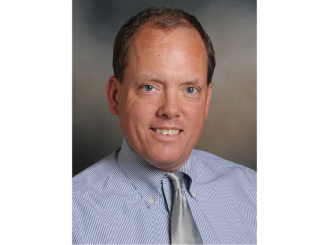By Joseph Merchant, MD
Although oncology providers and trainees may be only generally aware of the importance of the Current Procedural Terminology (CPT) coding system, it is integral to the survival of every oncology practice in the United States. The process behind the creation and maintenance of the CPT code-set is one in which ASCO must actively participate to advocate for and protect the interests of oncology professionals and our patients. As the current ASCO advisor to the CPT Editorial Panel I thought it important to write this introduction about the CPT process and about some of your colleagues who have been so important in representing the interests of ASCO in the past and present.
The American Medical Association (AMA) recognized the need for a uniform coding system to create a common language to describe provider reimbursement soon after the creation of Medicare in 1965. The first edition of the CPT manual was issued in 1966 and focused on surgical procedures. The code set has since evolved with the increased complexity of medical care, continuing to serve as a common language for reporting claims to payers and for data gathering by the Centers for Medicare and Medicaid Services (CMS) and health care insurers.
Since its inception the AMA has established the creation and maintenance of the CPT code set as an ongoing process directed by the CPT Editorial Panel. This panel's main job is to ensure that CPT codes remain up to date and reflect the evidence-based medical care. Accomplishing this goal involves quarterly meetings of the Editorial Panel, during which new codes may be added to allow billing for effective new medical services and outdated or duplicative codes may be sunset where needed. The CPT Editorial Panel consists of two parts:
- Executive Committee: Editorial Panel chair and co-chair, physicians and health care providers, and representatives from payers, CMS, America’s Health Insurance Plans (AHIP), and the American Hospital Association (AHA)
- Advisory Committee: Medical specialty society advisors and staff
As a participating specialty society, ASCO has dedicated staff who play an important role in the development of CPT codes, serving as a resource to the CPT Editorial Panel regarding oncology-related services while also serving all of us practicing oncologists through creating education resources around proper coding and billing. A recent example of ASCO's role in the CPT process was our work together with the American Society for Transplantation and Cellular Therapy, the American Society of Hematology, and the College of American Pathology which resulted in the approval of codes for reimbursement of CAR T-cell therapy, a process which involved hard work by ASCO staff and by volunteer ASCO advisors to the CPT who preceded me.
As an oncologist in private practice at the McFarland Clinic in central Iowa, I began volunteering for ASCO in 2011 as a member of the State Affiliate Council and then as part of the Coding and Billing Workgroup. I became familiar with the staff who work so hard on behalf of ASCO members, and I have always looked at my volunteer service as a way to give back to my mentors who trained me, my partners and colleagues, and to the patients who entrust me with their care.
An ASCO volunteer worthy of special mention is Dr. Christian Thomas of New England Cancer Specialists in Scarborough, Maine, who served as ASCO’s AMA CPT advisor for many years prior to me, representing ASCO in several important and complex projects significant to the specialty of medical oncology. He also served as the chair of ASCO’s Coverage and Reimbursement Steering Group and the Physician Compensation Workgroup, as well as a member of the State Affiliate Council and the Clinical Practice Committee. Dr. Thomas' selfless service exemplifies what private practice community oncologists can do to sustain the wider oncology community.
I am pleased to announce the appointment this year of Dr. Rahul Seth as the alternate advisor for ASCO on the CPT Advisory Committee. Dr. Seth is a practicing oncologist at the Upstate Cancer Center in Oswego, NY, where he also serves as the medical director of hematology/oncology. He is an experienced volunteer with ASCO, participating in the Coverage and Reimbursement Steering Group and State Affiliate Council. Dr. Seth was selected not only for his impressive qualifications, but for his passion for learning about the business aspects of the industry to improve the functions of oncology practices.
Dr. Merchant is an oncologist at McFarland Clinic, IA. He serves as ASCO’s primary advisor to the AMA CPT Editorial Panel. Disclosure.



Recent posts